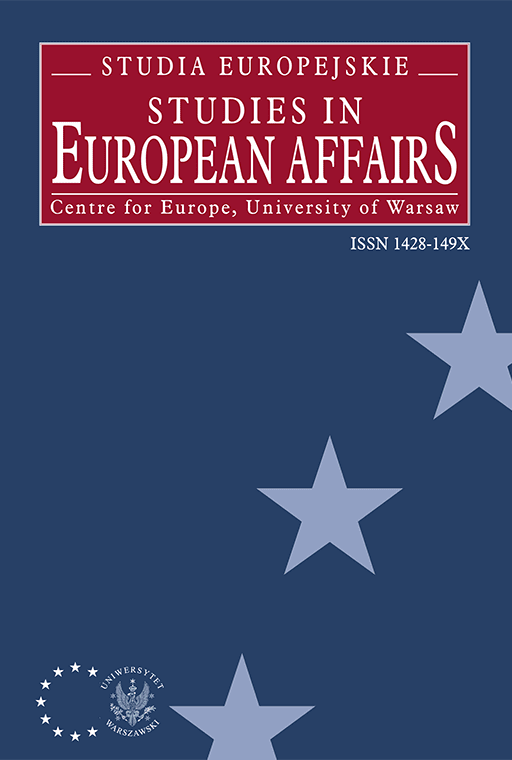
ISSUE: 3/2009
- Volume 51
- Number 3
- 2009
Subscribe NEWSLETTER
Studia Europejskie –
Studies in European Affairs
ISSN: 1428-149X
e-ISSN: 2719-3780
License
Articles published in the journal are under a Creative Commons Attribution – Non Commercial – No Derivatives 4.0 International License
Dyrektywa nr 97/81/WE dotycząca Porozumienia ramowego w sprawie pracy w niepełnym wymiarze godzin w świetle prawa wspólnotowego i polskiego
Directive no. 97/81/EC relating to the framework agreement on part time work in the light of the community law and the Polish law
Abstract
The objective of the framework agreement constituting the enclosure to the directive 97/81/EC is to facilitate making favourable conditions for employee change of working hours from full time to part time work and vice versa, on voluntary basis, to eliminate discrimination of workers hired on part time basis, as well as to facilitate their professional development. In Ar tic le 183a (1) of the Labour Code in the open catalogue comprising the criteria of differentiation of workers, the Polish legislator included, in particular, “the criterion of hiring for full time and part time work”. Grounds for legal regulations concerning protection against unequal treatment and non-discrimination in employment raise no doubts. However, the issue concerning the purpose of distinguishing “full-time from part-time employment” in the Polish Labour Code as on of the important criteria of distinguishing employees remains open. In this case the Polish legislator seizedan opportunity given by the Community law to adtop higher standards than those presented in the Community law. An im portant element of this protection is also a prohibition of discrimination included in Art.292 (1) of the Labour Code.
Language: Polish
Pages: 107-124
How to Cite:
Harvard
Szewczyk, H. (2009) "Dyrektywa nr 97/81/WE dotycząca Porozumienia ramowego w sprawie pracy w niepełnym wymiarze godzin w świetle prawa wspólnotowego i polskiego". Studia Europejskie – Studies in European Affairs, 3/2009, pp. 107-124.